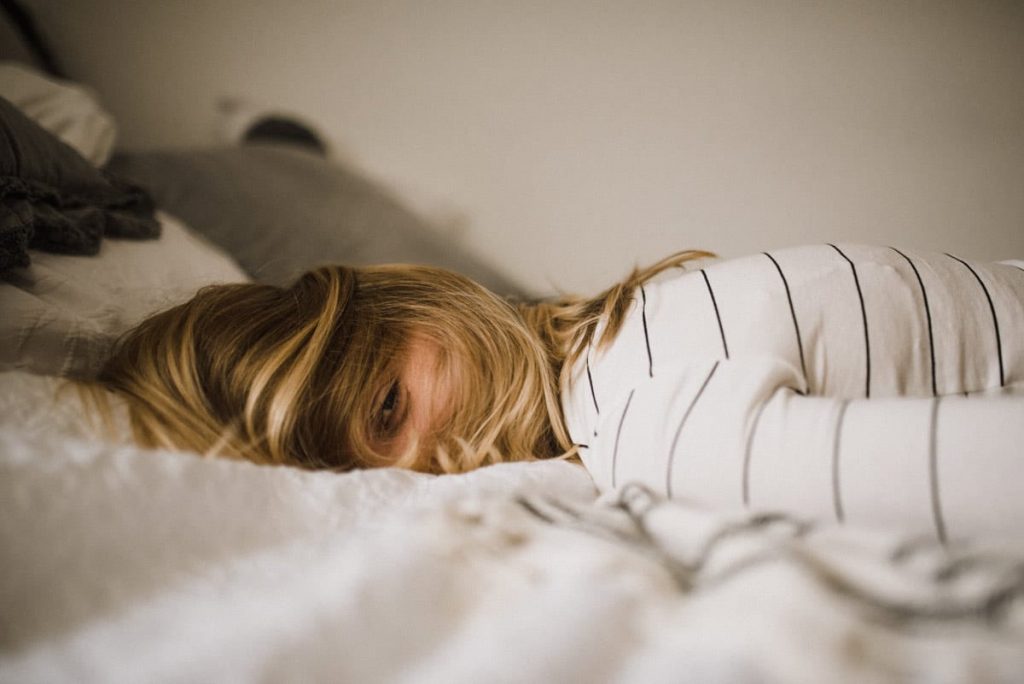Alongside the extreme highs and lows that are part of having bipolar disorder, sleep issues also pop up. Unfortunately, these problems don’t make the disorder any easier to manage. In fact, they can complicate the illness and even trigger episodes in people who are, otherwise, following their doctor’s orders.
Sleep and Mania
One of the poles of bipolar disorder, the manic phase, is closely tied to sleep. Mania is characterized by high levels of energy and activity, restlessness, optimism even in the face of dire circumstances, an increased desire to take risks, and more. A decreased need for sleep is also one significant marker of a manic episode.
It seems that sleep and mania are more closely tied than that, though. Getting less sleep, either because of sleep deprivation or jet lag, can trigger a manic episode. In fact, total sleep time is a predictor of future manic episodes. Also, raising total sleep time can be a goal for treatment of mania, and a longer sleep time often indicates that a particular treatment is working.
Sleep During Depression
When people with bipolar disorder are in a depressed state, they act in ways that are largely opposed to the ways they act when they are manic. Their energy is drastically reduced, they become pessimistic and uninterested in life, and they often sleep more, too. In fact, depressed people, whether they are bipolar or not, often sleep excessively and may struggle to get out of bed even after quite a bit of rest.
Most doctors don’t treat depression via sleep deprivation simply because the treatment doesn’t seem to last. However, regulating the circadian rhythms and having patients wake up even when they don’t feel like it, does seem to help depression. Many people, though, relapse once they are out of clinical care and can, once again, sleep as much as they want to.
Rest and Emotional Regulation
Sleep is a key for affect, or emotional, regulation. When researchers reduced study participants’ sleep to 5 hours per night, the participants’ moods got worse each day. Other research found that participants who had less sleep had more brain activity in response to negative images than those who were well-rested.
Emotional regulation is key to psychological health, especially for those with bipolar disorder. To stay away from both the manic phase and the depressive phase, people with bipolar disorder need to be able to manage their emotions. If they lose this ability when they don’t sleep well, it makes sense that sleep deprivation could contribute to the severity of their symptoms.
Sleep and Impulsivity
People with bipolar disorder tend to struggle with impulsivity, especially during their manic phases. They make unplanned decisions without regard for the consequences, which can get them into all sorts of trouble.
Researchers have found correspondence between sleep deprivation and higher levels of impulsivity. In one study, people who were sleep deprived were willing to take more and greater risks while gambling than they were when they were well-rested. They have even tied this sort of behavior to a particular area of the brain, one associated with gain. When subjects are sleep-deprived, risky choices seem more likely to lead to massive gains than they do after normal sleep.
Given the close connection between impulsivity and sleep, it seems likely that people living with bipolar disorder will have a better chance of avoiding impulsive decisions if they are well-rested. While this may be true for everyone, it could be more significant for them, because they struggle so much with making risky choices during manic episodes.
Improving Sleep When You Have Bipolar Disorder
Since a lack of sleep seems to enhance the symptoms of bipolar disorder or make them more challenging to deal with, it is probably worth the effort to learn how to get the sleep needed. Here are some keys to managing sleep for those who struggle with bipolar disorder.
- Keep to a strict sleep schedule, which means going to bed and getting up at the same time every day. Doing this may feel impossible when a person is in a manic or a depressive phase, so it’s important to begin this when a person is relatively stable. This routine will train the body to sleep and get up at certain times, which may help reduce the number of episodes they have or lower their severity when they do show up.
- Establish a bedtime routine. When you always do things in a certain order, your body learns what comes next. After a while, it will know that you do particular things, then you fall asleep. A consistent routine can help people with bipolar disorder to fall asleep, even when they are in the middle of a manic episode.
- Consider CBT-I (Cognitive Behavioral Therapy for Insomnia). This type of cognitive therapy is targeted to treat insomnia patients, but it may also help patients with bipolar disorder. This therapy trains people in how to arrange their lives and their minds for better sleep.
Living with bipolar disorder can be difficult, but regulating your sleep can help you get your life back. Begin by understanding how sleep interacts with the disorder. Then, implement the strategies to get the rest that will help regulate your mind and your life.
If you or someone you know experiences mental health issues, it is important to seek help from a qualified professional. Our Resource Specialist can help you find expert mental health resources to recover in your community. Contact us now for more information on this free service to our users.
Author Bio: Mary Lee is a researcher for the sleep science hub Tuck Sleep. She specializes in sleep’s role in mental and physical health and wellness. Mary lives in Olympia, Washington and shares her full-sized bed with a very noisy cat.
The opinions and views expressed in this guest blog do not necessarily reflect those of www.rtor.org or its sponsor, Laurel House, Inc. The author and www.rtor.org have no affiliations with any products or services mentioned in this article or linked to herein.
Recommended for You
- Why Eating Disorders in Men Are Often Missed - July 3, 2025
- No More Silence: The Opioid Epidemic’s Alarming Impact on Women - June 30, 2025
- The Hidden Impact of Repressed Memories on Mental Health and How to Heal - June 26, 2025





